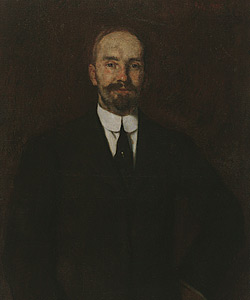 To Charles Augustus Strong
To Charles Augustus Strong
22 Beaumont St. Oxford
Oxford, England. January 12, 1919
Dear Strong
It is quite true that in my comments on your book I haven’t come to close quarters with your arguments. I think your metaphysical system, as sketched in your last chapter, is very attractive, and that if I could grasp it, I should have no difficulty in embracing it as at least one of the possible accounts of substance, or perhaps as a part of the true account of it, for I suppose if “attentive vividness” were widely diffused in matter, your axiom that it could not arise by evolution would be less plausible. But the difficulty I find is not in believing but in conceiving your position, and I hark back to other conceptions because I can’t frame those you propose. You see that I can’t comprehend “attentive vividness”, nor “feeling”, nor “introspection”, and I am not sure that “sensation” is intelligible to me, because while you say it ought to be distinguished from the object (the sensibile?) you also say that you can see a sensation move. This drives me to distraction, and my only resource is to unknit my brow and try to see the thing for myself in my own terms. Sometimes I think I have caught your meaning: e.g. I flattered myself that “attentive vividness” was simply a new name for awareness, and therefore I went on to say that it must be intuition of an essence, since awareness of nothing would not be awareness, I suppose. But now you tell me this is wrong, that “attentive vividness” is an entirely different thing, and I confess I am simply lost again. I have reread your last chapter and carefully studied your letter, but I don’t feel able to make any pertinent comments at present, because I am too much in doubt about your meaning.
My brother in Boston has lost his wife, who was the youngest (except my youthful self) of our generation. Their boy is still in France, and writes very interesting accounts of his experiences as a soldier. My brother is naturally much affected and writes despondently about his own approaching end: but I believe there is no ground for this foreboding, Yours ever
G Santayana
From The Letters of George Santayana: Book Two, 1910-1920. Cambridge, MA: The MIT Press, 2001.
Location of manuscript: Rockefeller Archive Center, Sleepy Hollow NY.
